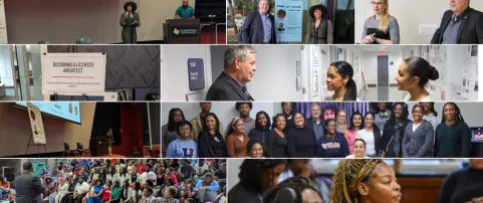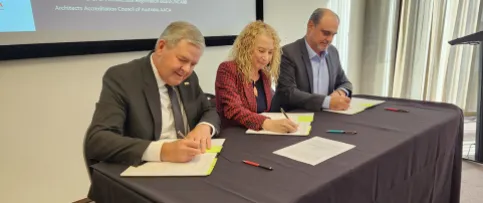New Orleans—President-elect Dennis S. Ward, AIA, NCARB, announced at NCARB’s 2015 Annual Business Meeting that the Council will move forward with a renewed focus on strengthening the NCARB Certificate program—an endeavor that will require collaboration across all areas of the organization.
“As I have traveled around the country, I have been posed the question many times over: ‘What will having a Certificate do for me?’” Ward said. “I have asked each committee, regardless of their title, to spend time focusing on how to add benefits to the Certificate program beyond reciprocal licensure.”
As the 2015-2016 president, Ward also announced the creation of a new Ethics Task Force, to be chaired by immediate past president Dale McKinney, FAIA, NCARB, that will explore how ethics can become a part of the regulatory tool kit. He is also establishing the Integrated Path Evaluation Committee (IPEC) to ensure the two-year investment the Council has made in exploring an integrated path to licensure bears fruit.
“This will be the year to make sure this initiative really takes root,” Ward said. “We are on the threshold of a momentous change to the sustainability of our profession by offering choices that can help counter demographic/socioeconomic barriers currently impacting those hoping to become an architect.”
Another priority for NCARB is to explore how to best implement the recommendations of the Future Title Task Force regarding the use of the title “intern.” In the coming year, several committees will address changes to programmatic titles, as well as create a sunset plan regarding the “intern” title. Ward said it will also be important to develop a sustainable model for involving volunteers in the Council’s work. “Through effective use of our volunteers, we add credibility to our programs,” he said.
Ward assured Member Board representatives that NCARB is dedicated to going further to better serve the needs of the entire architectural community. “NCARB is becoming the organization we all want it to be. A leader regarding licensure concepts, an aid to the work of our Member Boards, and an advocate for the value licensure brings to the public—recognized by our collaterals, constituents, emerging professionals, and the profession as no longer an impediment, but an asset.”





